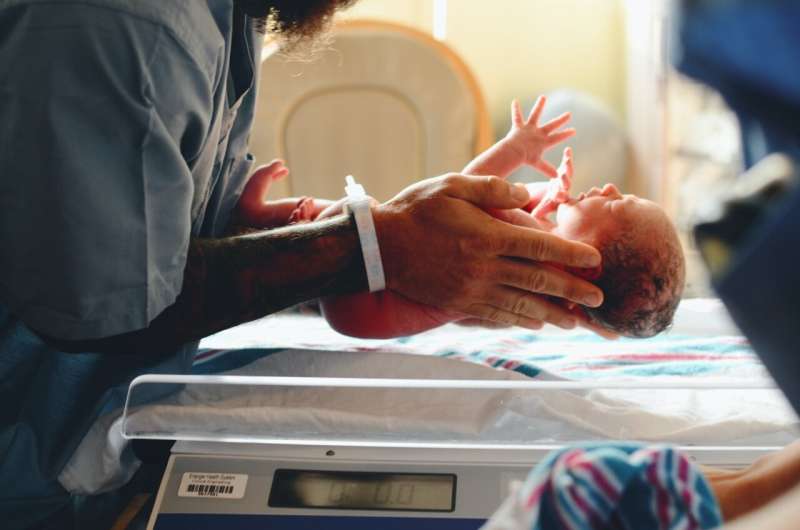
Experts are highlighting unfair differences in pregnancy outcomes and the critical role that maternity services can play in identifying and adapting approaches for those parents in higher risk groups.
The research from Public Health Wales and Fuse, the Center for Translational Research in Public Health, looked at 35 studies and over 17 million pregnancies in the U.K. and Republic of Ireland and shows that people in lower paid occupations have a 40% increased chance of having a pregnancy resulting in the baby dying, being born too early or being born with a low birth weight, in comparison with people in higher paid occupations.
Dr. Nicola Heslehurst, co-lead of the Fuse Early Life and Adolescence Program and Senior Lecturer in Maternal Nutrition at Newcastle University, said, “Preventing adverse pregnancy outcomes is an essential step in breaking the cycle of inter-generational inequalities.
“This evidence shows us the importance of individual and household-level deprivation and the need for public health and maternity interventions and policies to support families with socio-economic inequalities.”
Amy McNaughton, consultant in public health at Public Health Wales, said, “We know that healthy pregnancies matter: not just for a safe and healthy birth but also to help give children better health, well-being and life chances as they grow up.
“Maternity health professionals, especially midwives, already do a fantastic job at supporting parents through their pregnancies and are the ones that get to know them and their needs best.
“This puts them in the perfect position to be able to identify at the earliest stage families that may need additional support, and consider how usual care could be adapted to better meet the needs of these families so they can be more involved in decisions about their care.”
Inequality in pregnancy
Key findings from the report include:
- There is a clear link between employment and pregnancy outcomes. It influences pregnancy outcomes in a number of ways—physical environment, effort and stress, income, time, access to services and support networks.
- The type of employment people have is in turn influenced by their education and social background.
- Disadvantaged families are more likely than better off families to have problems during pregnancy and birth.
- Better data is needed to understand in more detail how other types of disadvantage including education, health and housing influence pregnancy outcomes.
- Behavior is influenced by wider factors—many of them outside the direct control of the individual.
Sue Tranka, chief nursing officer and nurse director, NHS Wales, said, “This important partnership work between PHW and Fuse highlights the need to incorporate approaches in maternity care that address wider determinants of health, to provide women and families with the best chances of having a healthy pregnancy and baby and to decrease pregnancy-related health inequalities in the general population.
Source: Read Full Article
